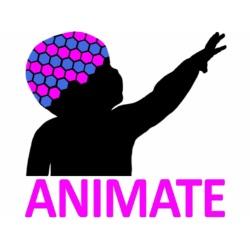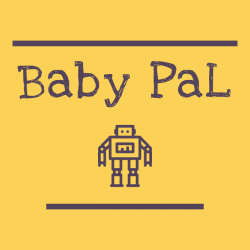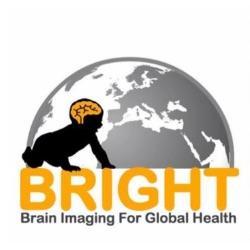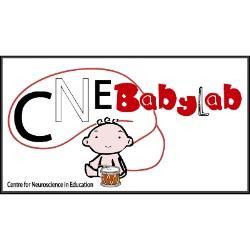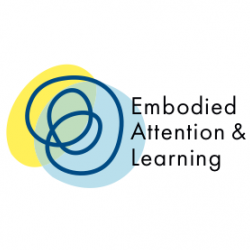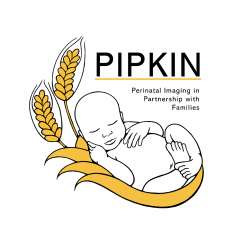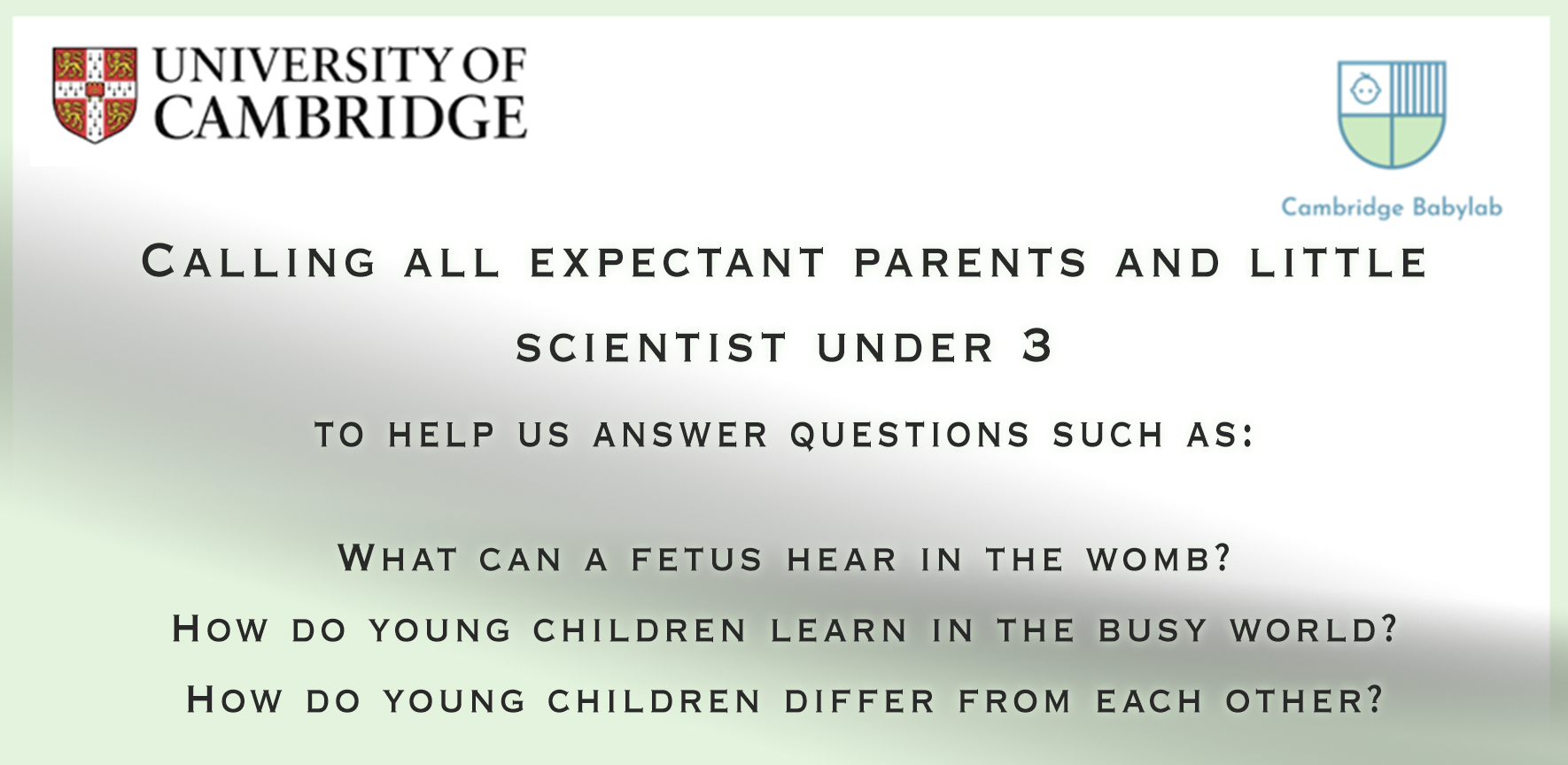
Welcome to the Cambridge Babylab! We are a group of scientists interested in how babies and toddlers develop and learn about the world around them. We are fascinated by all of the changes that take place from birth – and even before – that help babies grow into walking, talking, curious toddlers.
We study early development in lots of different ways including brain imaging, tracking eye movements, and observing babies' behaviour. Please explore the links below to learn more about our research groups and about the studies you can participate in with your Little Scientist. We have research studies for Junior Scientists, Little Scientists & even Little Scientists who haven't been born yet!
If you live in or around Cambridgeshire, or are willing to travel to us, and are interested in participating in our studies, please send us an email or register your interest! In order to send you details of any studies your family might be suitable for we need to know a little bit about you. We would be grateful if you could register your child and answer some questions for us here. All information is kept confidential and will only be used to match you with suitable studies.
|
We are investigating how infant brain function develops over the first year of life using a wearable, baby-friendly brain imaging system. This devices is worn like a hat, and uses red light to safely map the infant brain. Read more |
We are interested in exploring how the infant brain learns to build associations between sounds and pictures. We think this process may be disrupted in some developmental disorders, but first it’s important to understand how this learning occurs in typical development. See more |
|
The project is a longitudinal, multi-method study that follows infants in the UK and The Gambia from birth to the age of 24 months. This project aims to establish infants’ brain function growth curves in both these settings, in order to gain an insight into the effects that malnutrition and environmental difficulties may... Read more |
Language lies at the heart of our experience as humans and disorders of language acquisition carry severe developmental costs. Recent results in auditory neuroscience show that speech processing depends on brain wave rhythms aligning to rhythms in speech. So the infant brain needs to learn to “copy” the rhythms produced... Read more
|
|
We are interested in how attentional and motor skills in young children affect learning in everyday settings, such as play between parent and child. This is important to understand, because children with various genetic syndromes often present with attentional and motor difficulties early in development. We believe our... |
Being born is one of the most dramatic of human experiences. The fetus moves from the protection and relative monotony of the mother’s womb into a world of sound, colour, touch, smell, and taste. Faces and voices are among the most prominent new experiences and this first taste of our social world triggers rapid changes in... |

